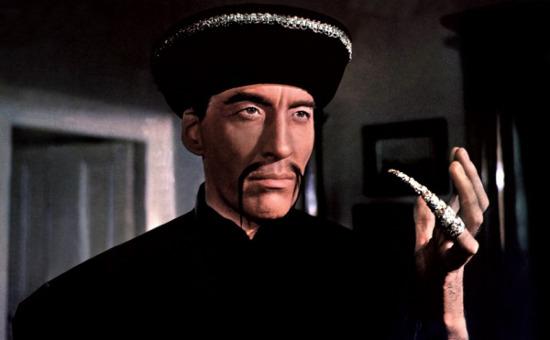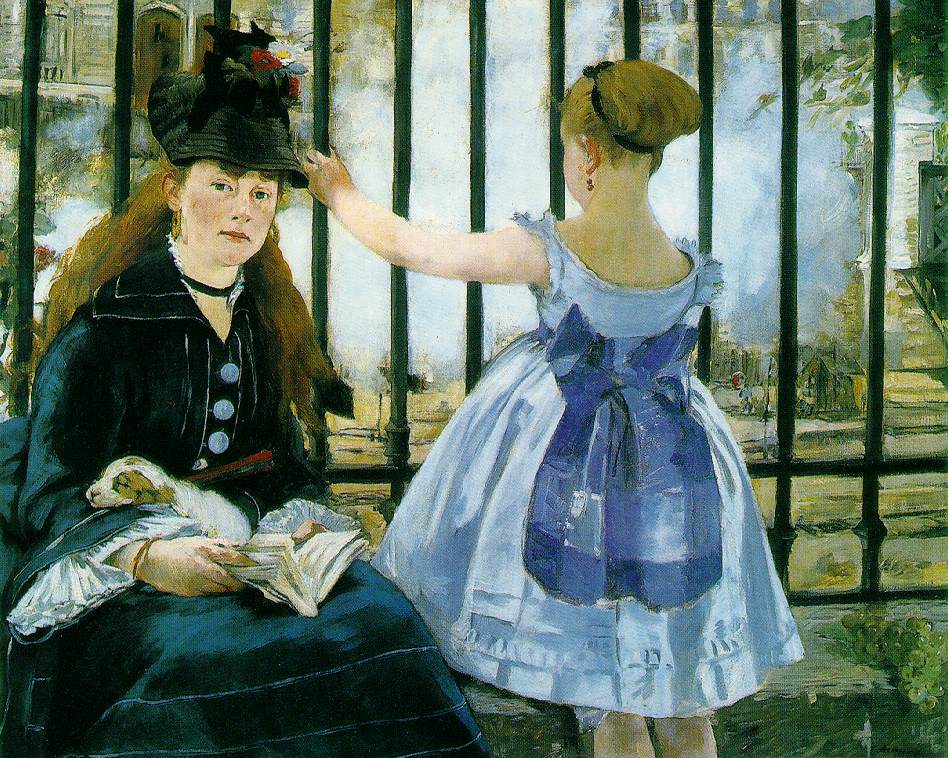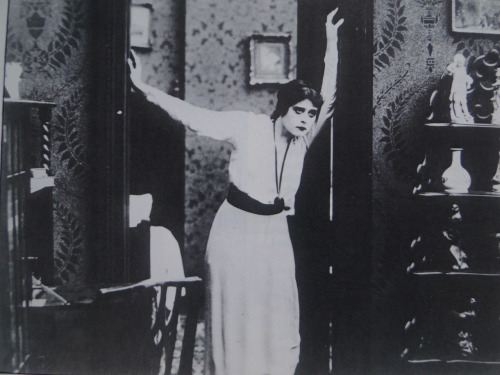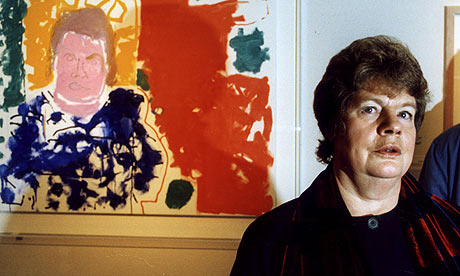-
Architecture
archive
art
Ballard
body
China
cinema
ecology
education
Europe
Ezra Pound
futurology
gothic
image
law
Literature
London
magic
memory
Modern
Modernism
museums
music
novel
performance
photography
poetry
politics
radical philosophy
science
science fiction
Sinclair
Situationism
sound art
Surrealism
technology
television
the avant-garde
The Future
Theory
thomson
time
Urban
visual culture
war
Posts tagged novel

Simon Avery and Katherine M. Graham from our friends in Westminster’s Queer London Research Forum will be speaking to the Literary London reading Group about Jonathan Kemp’s London Triptych (2010) on Tuesday 24 Jun 2014, 6.00-7.30 pm in Senate House, Room 234. Jonathan Kemp’s novel charts the lives of three gay men, who all inhabit and explore London, but who do so in very different time periods. Covering 1894, 1954 and 1998, London Triptych interrogates what it means to be a gay man; what it means to be at the mercy of the law; and how London itself might be seen to facilitate a particular relationship between art and identity. The novel also asks readers to consider form, and the three narratives wind through London and through history, creating striking resonances across these times and the city.
A selection of extracts and the Afterword from the novel are available for download through the dropbox links below. Or you can get a copy from Gay’s the Word bookshop on Marchmont Street, which we are reliably informed is the only queer bookshop left in the UK .
Extracts: https://www.dropbox.com/s/nmmiuk5flldo38r/Extracts.pdf
Afterword:https://www.dropbox.com/s/104ny599ynrrmzs/Afterword.pdf
Important: Historical Novel symposium change of venue, Dec 3rd
Tagged as London, novel, radical philosophy

Because of the projected national university strike on December 3rd, the Historical Novel of the Contemporary Symposium scheduled for that afternoon will now be run as an independent event to be held in the downstairs space at the Carroll / Fletcher Gallery in central London. We are extremely grateful to Carroll / Fletcher for the generous offer to host.
Revised details as follows:
The Historical Novel of the Contemporary: A Symposium
Tuesday 3rd December, 2-6pm
Carroll / Fletcher Gallery, 56 – 57 Eastcastle Street, London W1W 8EQ
Speakers: Emmanuel Bouju (Rennes), David Cunningham (Westminster), John Kraniauskas (Birkbeck), Fiona Price (Chichester), Leigh Wilson (Westminster)
The subject of a revival in recent decades, in both its ‘literary’ and ‘popular’ forms, for Georg Lukács the historical novel was, above all, that which narrated the ‘pre-history of the present’. Discussing authors ranging from Roberto Bolano to David Peace, Hilary Mantel to Wu Ming, this afternoon symposium considers the historiographic and political forms of the historical novel today as it might narrate the pre-history of our own contemporary.
Historical Novel of the Contemporary Symposium
Tagged as Literature, novel, politics

The Historical Novel of the Contemporary: A Symposium
Tuesday 3rd December, 2-6pm
Carroll / Fletcher Gallery, 56 – 57 Eastcastle Street, London W1W 8EQ
Speakers: Emmanuel Bouju (Rennes), David Cunningham (Westminster), John Kraniauskas (Birkbeck), Fiona Price (Chichester), Leigh Wilson (Westminster)
The subject of a revival in recent decades, in both its ‘literary’ and ‘popular’ forms, for Georg Lukács the historical novel was, above all, that which narrated the ‘pre-history of the present’. Discussing authors ranging from Roberto Bolano to David Peace, Hilary Mantel to Wu Ming, this afternoon symposium considers the historiographic and political forms of the historical novel today as it might narrate the pre-history of our own contemporary.
Fu Manchu in London, Friday 4th October 2013
Tagged as China, Literature, London, novel, Urban

Fu Manchu in London: Lao She, Limehouse and Yellow Peril in the Heart of Empire
Friday 4th October 2013
University of Westminster, 115 New Cavendish Street, London W1W 6UW
We are pleased to announce a special one-day conference on the occasion of three inter-related events this autumn: the publication by Penguin Modern Classics of Lao She’s forgotten masterpiece of 1920s Chinese London, Mr Ma and Son, the launch at the Ovalhouse Theatre of Daniel York’s satiric play, The Fu Manchu Complex (dir. Justin Audibert), and, to mark the centenary of the first appearance of “the Yellow Peril incarnate in one man”, Lord of Strange Deaths: The Fiendish World of Sax Rohmer, a collection of essays edited by Phil Baker and Antony Clayton (Strange Attractor Press, 2013).
The day’s speakers will examine the contexts and enduring fascination of one of the world’s most notorious fictional villains, from the fin-de-siecle racial anxieties and obsessions that spawned Rohmer’s oeuvre to the skewed perceptions that have arisen around his pervasive influence. Of all the overseas Chinese who came to England during the inter-war years, Lao She was the only one to confront the popular Sinophobia endemic in British society directly. Mr Ma and Son: Two Chinese in London (Er Ma, 1929) portrays the pernicious effects of the media on the lives of Chinese people in London. Based on his own experiences in London and written principally for a Chinese readership, the novel gives us a rare, if not unique, picture of the social and commercial affairs of the shop-keepers, café proprietors, and seafarers, that made up the major part of London’s small Chinese community, then based in Limehouse in the East End. Daniel York’s play, The Fu Manchu Complex challenges the resonances of ‘Yellow Peril’ stereotypes for the 21st century in a satirical pastiche of classic British cinema. Five East Asian actors ‘white up’ in the style of slapstick and Victorian music-hall comedy to play the traditional colonials in a murder mystery set in the East End.
Admission is free but please register by emailing Dr Anne Witchard at: anne@translatingchina.info
PROGRAMME
10.00AM – “Some Kind of Admiration or Respect”: Dr Fu Manchu as Hero
Phil Baker
10.45AM – The Case of the Yellow Peril Then and Now
Dr Ross Forman (University of Warwick)
11.30AM – 11.45AM – coffee
11.45AM – Fu Manchu, Orientalism and Arabophilia
Robert Irwin (SOAS /Times Literary Supplement)
12.30PM – 1.30PM – Lunch
1.30PM – Rohmer’s Odyssey
Antony Clayton
2.15PM – Mr Ma and Son: Limehouse and the Yellow Peril genre
Dr Julia Lovell (Birkbeck) in conversation with author Paul French
3.15PM – The Fu Manchu Complex
Daniel York and Justin Audibert will discuss their play, The Fu Manchu Complex, in production at the Ovalhouse Theatre in London.
The Fu Manchu Complex runs at the Ovalhouse, Kennington 1 – 19 October, Tues-Sat 7.45pm BOOK / BOX OFFICE: 020 7582 7680
The Science Fiction Politics of Urban Crisis article
Tagged as cinema, novel, politics, radical philosophy, science fiction, Urban

A new article by David Cunningham and Alex Warwick has just appeared in the most excellent journal CITY, vol. 13, no. 4: ‘Unnoticed Apocalypse: The Science Fiction Politics of Urban Crisis’. The essay ranges over a number of contemporary texts from The Coming Insurrection to Rem Koolhaas’ Junkspace to the film District 9.
The nice people at Taylor & Francis Press are offering the first 50 people to make use of it free access to an eprint version from the following link: http://www.tandfonline.com/eprint/AqbgvrWCkCSXg8XZEwgd/full
Book launch and conference: Ali Smith: Contemporary Critical Perspectives, Sept 7th
Tagged as Literature, novel

We are pleased to announce the book launch of Monica Germana’s edited collection on Ali Smith, which is published this month by Bloomsbury (co-edited with Emily Horton). To mark the publication of the first volume of essays on this important contemporary author, Monica and Emily are organising a one-day conference on 7 September 2013. The conference will conclude with a talk by Ali Smith chaired by Dame Gillian Beer. The book launch will take place in conjunction with the talk at 11 Bedford Square, London WC1B 3RF at 5pm.
You are all warmly invited to the book launch and the following wine reception. Please note that, although the event will be free of charge, places are limited. Please email Emily on emilische@hotmail.com to reserve your place.
More information about the conference can be found on this dedicated website:
http://alismith21cf.wordpress.com/
If you wish to attend the whole conference, registration is open and available from this website:
http://onlinestore.rhul.ac.uk/browse/product.asp?compid=1&modid=1&catid=430
Railways and Fiction
Tagged as Literature, novel, technology

A new piece by Chris Daley in the excellent online journal Alluvium about railway fiction. Here’s the first couple of paragraphs:
Railways are news. On the one hand, they are the source of consternation as above inflation fare rises couple with the perceived drudgery of commuting to characterise the railways as a site of soaring ticket prices and overcrowded, invariably late trains. But this sentiment lives alongside whimsy and romanticism, be it through preservation lines or the restoration of ageing steam engines. This paradoxical image of the railway system is, however, nothing new within the British popular imagination and as Ian Carter (2000) points out, this may have something to do with the railways’ historical link to contested areas of modern everyday life: “So much that we take for granted today was invented or perfected in the nineteenth century to facilitate railways’ development, or to limit their potential for political, fiscal or physical mayhem: standardised time, a disciplined and uniform labour force, large-scale bureaucratic organisation, joint-stock industrial corporations, close State regulation of private capitalists’ activities.”
Similarly, British fiction has maintained an ambivalent relationship with railways. Confronted with a new revolutionary transport system, Victorian novelists offered the most sustained exploration of the potentialities of trains, yet by being, as Nicholas Daly (1999) puts it, ‘the agent and icon of the acceleration of the pace of everyday life’ (463) in the mid-nineteenth century, the railways were also a source for the countless anxieties of industrialisation. Contemporary fiction, in Britain at least, is curiously quiet on the railways, with their appearance often limited to neo-Victorian narratives that attempt to reignite the energy of the steam age. However, to mark the 150 year anniversary of the London Underground, Penguin will release, in March, a series of railway writings that could, perhaps, ignite an imaginative investigation of a transport system that is often seen as mundane, yet is simultaneously a potent symbol of transformation. It is therefore apt to briefly map the terrain of railways in fiction and popular culture in order to anticipate where any future speculation may venture.
Read further at: http://www.alluvium-journal.org/2013/01/12/railways-and-fiction/

Wednesday 28th November, 4.00pm – 5.30pm
Room 106, Wells Street, University of Westminster, London W1T
Martin Eve (University of Sussex)
‘Opening children’s eyes’: Overloaded Forms and the Didactic Function
Since Pynchon, the postmodern encyclopaedic form has been recognised as possessing an ethical core. Indeed, Gravity’s Rainbow was only briefly treated solely as a structure of interminable play and quickly found its place, especially in light of Pynchon’s other novels, as a politicised work focusing on the military-industrial complex and contemporary America. It can equally be asserted, though, that the “ethical turn” in literary studies is sited at a specific, historicized moment and is not without its own problems: when we say “ethical”, rather than “moralising”, are we, in fact, merely refusing to recognise the relativity and transitivity of our own moral strictures? To begin to formulate a less innocent, more experienced, new terminology for this mode, this paper will look at two overloaded works, Thomas Pynchon’s Gravity’s Rainbow and Roberto Bolaño’s 2666. Through an analysis of these immense, torrential novels, the paper will unearth their inherent didactic function, examine the way in which they conscript our intellectual capital to pre-dispose us towards their ethics and draw out the place of teaching and learning, through the representation of the university and academia.

Wednesday 14th November, 4.00pm – 5.15pm
Wells Street, room 106
Bianca Leggett (Birkbeck College, University of London)
Englishness Elsewhere: Exploring Parochialism in the Contemporary English Travel Novel
Ever since the days of Defoe’s Robinson Crusoe, English fiction has repeatedly portrayed travelling protagonists who feel possessed by the need to be English elsewhere, that is, to travel. Terry Eagleton has suggested that the ‘striking number of contemporary novels written in England but set in some non-English locale suggests ‘a sense that from the viewpoint of “creative” writing there is something peculiarly unpropitious about the typical social experience of an industrially declining, culturally parochial, post-imperial nation.’ This paper traces the historical and cultural origins of the myth of the English as a nation that both loves travel and yet remains staunchly parochial, suggesting that contemporary Crusoe-stories are part of how the English have attempted to understand their role in a post-war postcolonial world. It considers how this myth is revisited and revised in three stories of Englishmen in Continental Europe, Ian McEwan’s The Innocent (1990), Julian Barnes’s Metroland (1980) and Geoff Dyer’s Paris Trance (1998). While each novel comments on historically distinct moments in English attitudes to European identity, their similarities suggest a shared desire to critique English insularity. Finally, the paper asks whether the portrait of Englishness which finally emerges is more ambivalent than it first appears, suggesting that its admonitory messages are tempered by elements of postcolonial melancholia and nostalgia.
Capitalism, Democracy and the Novel seminar
Tagged as London, novel, radical philosophy
Courtesy of our friends in the Centre of the Study of Democracy …
The Prose of the World:
Capitalism, Democracy and the Novel
Dr David Cunningham, University of Westminster
Tuesday November 6, 17:15-18:45 | Westminster Forum, 5th Floor, Wells Street
UPDATE: Video posted at: http://www.youtube.com/watch?v=uR5ktvgFqVc&feature=em-share_video_user
Nuclear Criticism
Tagged as Europe, Literature, novel, technology, war

Great piece by Chris Daley in the new online journal Alluvium about nuclear criticism. Here’s the first paragraph:
In 1984, the journal Diacritics set out to define what it labelled as the developing academic terrain of ‘nuclear criticism’. The opening section of the journal entitled ‘Proposal for a Diacritics Colloquium on Nuclear Criticism’ established that ‘critical theory ought to be making a more important contribution to the public discussion of nuclear issues’ and proceeded to list a series of nuclear themes that required immediate consideration. Among these were an examination of the nuclear arms race and the ‘dialectic of mimetic rivalry’ it provoked, ‘the power of horror’ and most pertinently ‘the representation of nuclear war in the media as well as in the literary canon’. This last topic was all the more powerful for a mid-eighties audience as the early years of the decade had seen a re-emergence of nuclear anxieties that were reminiscent of the fears twenty years earlier during the Cuban Missile Crisis. The election of Ronald Reagan in 1980 and his subsequent verbal assaults on the ‘evil empire’ of the Soviet Union, energised the ferocious ideological divide between the two superpowers that had ebbed and flowed in intensity throughout the Cold War. Meanwhile, in both the United States and Britain a variety of cultural and media productions speculated on the consequences of such intense political rhetoric. While these texts were predominantly non-canonical and therefore often overlooked by the nuclear critics, they nonetheless question and evaluate the purpose of the nuclear referent in the political power struggle of the Cold War.
Read further at: http://www.alluvium-journal.org/2012/07/01/nuclear-criticism/
Narratives of Suburbia conference
Tagged as Literature, London, novel, Urban

Narratives of Suburbia
Friday 15th June 2012, 9.15am – 5.15pm
Room 354, University of Westminster, 309 Regent Street, London
Programme: Narratives of Suburbia Programme[1]
The Department of English, Linguistics and Cultural Studies at the University of Westminster is delighted to host the 17th Westminster Colloquium entitled ‘Narratives of Suburbia’ on Friday 15th June 2012. The colloquium aims to assess contemporary representations of suburbia in British and North American fiction, with a particular focus on the exponential growth of suburbia since the Second World War and the fictional offshoots it has produced. By exploring the work of Anglo-American authors, the objective is to identify thematic and stylistic areas of convergence and divergence.
Speakers:
John Beck (Newcastle)
Christine Berberich (Portsmouth)
Professor Neil Campbell (Derby)
Mark Clapson (Westminster)
Martyn Colebrook (Hull)
Martin Dines (Kingston )
Nick Hubble (Brunel)
Rupa Huq (Kingston)
Entrance is FREE but space is limited so please book your place in advance by contacting the organisers, Christopher Daley (daleyc@westminster.ac.uk) and Aisling McKeown (A.Mckeown@westminster.ac.uk). Full programme to follow.
Th
Cory Doctorow at University of Westminster, 22nd Feb at 3
Tagged as novel, science fiction, technology, war
Wednesday 22 February at 3pm
2.05A School of Law, 4 Little Titchfield Street, London W1W 7UW
Cory Doctorow
‘There is a war coming: the future regulation of general purpose computation’
Organised by our friends in The Centre for Law, Society and Popular Culture
ALL WELCOME. RSVP Danilo Mandic: danilo.mandic@my.westminster.ac.uk
Cory Doctorow (craphound.com) is a science fiction author, activist, journalist and blogger — the co-editor of Boing Boing (boingboing.net) and the author of Tor Teens/HarperCollins UK novels like FOR THE WIN and the bestselling LITTLE BROTHER. He is the former European director of the Electronic Frontier Foundation and co-founded the UK Open Rights Group. He is the author of Content: Selected Essays on Technology, Creativity, Copyright and the Future of the Future, (2008). Born in Toronto, Canada, he now lives in London. See further, http://craphound.com/bio.php
WESTMINSTER.AC.UK/LAW
The London Reading Club
Tagged as Literature, London, novel, Urban

A quick plug for the London Reading Club, a new blog for the book group attached to the MA Writing the City at the University of Westminster, which is run by our own Monica Germana. Check out posts that discuss London writings ranging from Virginia Woolf to Monica Ali here: http://thelondonreadingclub.wordpress.com/

Wednesday 23 November, 1.15pm – 2.30pm
Room 359, 309 Regent Street, University of Westminster
Samuel Thomas (Durham University)
“The Gaucho Sells Out: Thomas Pynchon, Nation Building & Argentina”

Wednesday 16 November, 4.15pm – 5.45pm
Room 312, Wells Street, University of Westminster, London W1T
‘Pragmatic Implicature and the novel’
Ruth Schuldiner, University of Oxford
This paper will discuss the sustained use of implicature to communicate central, unambiguous elements of plot in fiction novels; specifically, it will look at instances in which a reader’s understanding of an implicitly communicated event is integral to their understanding of the remainder of the narrative. It is proposed that, in third-person narratives, a perceived context of fictionality is depended upon for the construction of some of these implicatures: many of them exploit the perceived omniscience of the narrator, and by extension the fictionality of the text. This conclusion feeds into a broader argument concerning the possible differences associated with reading fictional vs. nonfictional texts, or how an assumed context of either fictionality or nonfictionality affects readers’ interpretations of individual utterances and the coherence of narratives as a whole. When an author chooses to communicate central narrative information through implicature, the reader is faced with the important puzzle of why an omniscient persona would opt for an inarticulate mode of communication. It is this implicitly posed question that emphasizes the relevance of the implicatures to their context, dispersing the ambiguity of superficial ellipses. The paper discusses excerpts from M.E. Braddon’s Lady Audley’s Secret to evidence the argument.
Fictions of the Not Yet
Tagged as Literature, novel, science fiction, The Future, time

Wednesday 9 November, 1.15pm – 2.30pm
Room 359, 309 Regent Street, University of Westminster
Caroline Edwards (University of Lincoln)
‘Fictions of the Not Yet’
As the first decade of the twenty-first century comes to a close, there is a growing critical awareness of the current fascination with alternative and future worlds in contemporary British fiction. In addition to the continuing popularity of – and growing scholarly interest in – speculative and genre works, an emerging body of “literary” fictions is revealing a wide-ranging preoccupation with narratives of apocalypse, transmigration and haunting. Writers like David Mitchell, Jeanette Winterson, Jim Crace, John Burnside, Marina Warner, Maggie Gee, Jon McGregor and Sam Taylor are thus shifting the parameters of realist literary fiction and its generic borrowings, and in the process articulating a shared concern with the question of temporality. We need to develop a new strategy of reading such fictions in order to examine the formal innovations executed by these visions of temporal alterity and futurity. This paper will outline a refunctioning of Ernst Bloch’s category of the “Not Yet” (Noch Nicht) in order to provide a methodological framework that can draw out the distinctly utopian implications that are prevalent in the contemporary British novel. This refunctioning not only reconsiders the relationship between philosophical discourse and narrative imaginaries, but also helps us outline the distinctive structural, thematic and stylistic characteristics shaping an emerging caucus of fictions.
Michael Nath’s first novel La Rochelle was shortlisted for the 2011 James Tait Black Memorial Prize for Fiction. At the award ceremony held at the Edinburgh Book Festival, chair of the judges Lee Spinks outlined his appreciation book in conversation with Sally Magnusson.

We are happy to announce the most excellent news that Michael Nath’s debut novel La Rochelle, for which we helped to organise the official launch in 2009, is one of four books shortlisted for the prestigious the James Tait Black Memorial Prize for fiction. The shortlist was announced at Dover House, London. The winners will be announced at the Edinburgh International Book Festival in August.
The James Tait Black Award, worth £10,000 to the winner, is awarded annually by the University of Edinburgh’s School of Literatures, Languages and Cultures, and were founded in 1919 by Janet Coats, the widow of publisher James Tait Black, to commemorate her husband’s love of good books. Past winners of the awards include the likes of DH Lawrence, Graham Greene, Evelyn Waugh, Muriel Spark, Angela Carter, Cormac McCarthy, Martin Amis, AS Byatt, William Golding and Ian McEwan.

Thursday 20 January 2011, 6-8pm
Main Foyer, 309 Regent Street, University of Westminster, London W1B 2UW
One we should have posted earlier, but if anyone is around this evening you are warmly invited to join Dame Antonia Byatt to celebrate the publication of a new monograph on A S Byatt’s work by Westminster’s Alexa Alfer with Amy Edwards de Campos.
This stimulating and comprehensive study of A S Byatt’s work spans virtually her entire career and offers insightful readings of all of Byatt’s works of fiction up to and including her Man-Booker-shortlisted novel The Children’s Book. The authors combine a clear and accessible overview of Byatt’s oeuvre to date with close critical analysis of all her major works. Uniquely, the book also points beyond the immediate context of Byatt’s fiction by considering her critical writings and journalism alongside her novels and short stories.
To book your place, please visit westminster.ac.uk/criticalstorytelling


The Institute for Modern and Contemporary Culture
University of Westminster Department of English, Linguistics and Cultural Studies
32-38 Wells Street, London W1T 3UW. United Kingdom.
